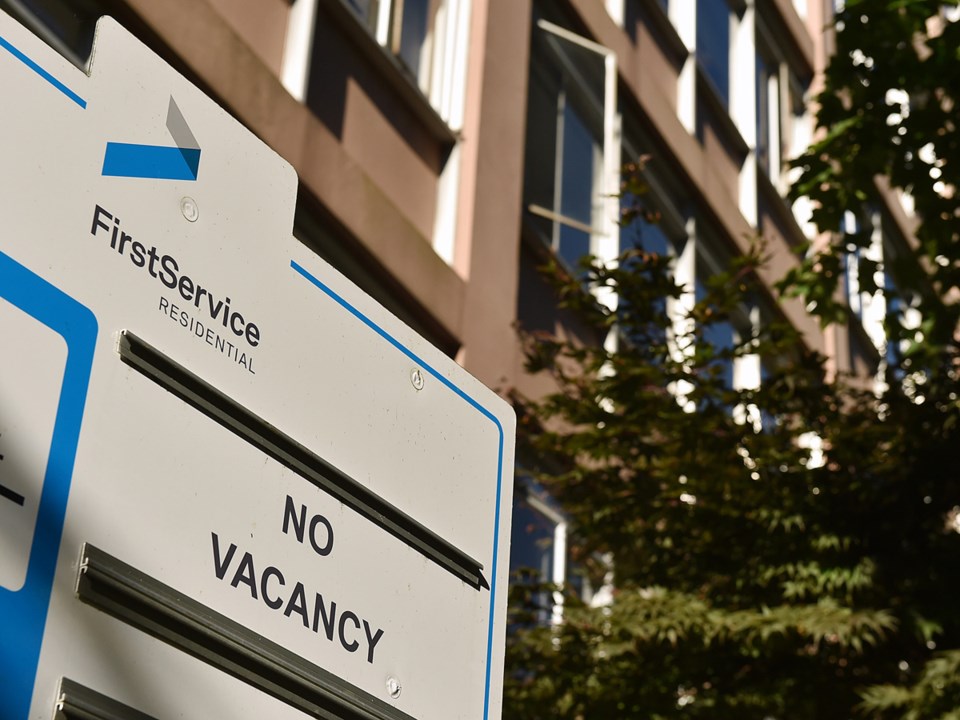The �鶹��ýӳ��Tenants Union is calling for wide-ranging changes to the Residential Tenancy Act including a four-year rent freeze, increasing the grace period for late payment of rent from five to 14 days, an end to renovictions, prohibiting discrimination against tenants with children or pets, and the elimination of security deposits.
These recommendations are among 50 the union submitted May 29 to the government’s newly formed Rental Housing Task Force.
The , headed by Vancouver-West End MLA Spencer Chandra Herbert, is about to embark on a tour of 10 B.C. communities to collect feedback from the public to modernize the act, which hasn’t been updated since the early 2000s.
Its �鶹��ýӳ��meeting is June 27.
The VTU’s recommendations cover a broad scope of tenant concerns, but its three primary recommendations are to re-implement vacancy control by limiting rent increases to once every 12 months regardless of whether there has been a change of tenants, to require automatic dispute resolution hearings for all evictions and to legislate measures to retain affordable housing stock.
The remaining recommendations are grouped under eight themes: maintenance, paying rent, improving Residential Tenancy Board processes, preventing discrimination, security during transitional periods and commercial tenant protections.
“These recommendations are rooted in the belief that if we protect people’s housing and their housing rights we can make a huge impact on poverty and the quality of life in this province,” the VTU’s submission states.
Vacancy control, outlined as one of the key recommendations, was prioritized because “it will disincentivize evictions issued for a profit motive, slow the destruction of low-income rentals, lower RTB caseloads and facilitate positive, good-faith relationships between landlords and tenants,” according to the VTU.
The union also argues that landlords should have to apply for dispute resolution with the RTB and schedule a hearing before issuing an eviction notice, and that tenants in residential properties of more than five units should be told three months in advance of a landlord’s intention to sell the property. They should then be given first priority on putting forward a purchase proposal for the building, according to the VTU.
Liam McClure, a member of the �鶹��ýӳ��Tenants Union, said the group has been working on the recommendations for months in anticipation of a review of the Residential Tenancy Act.
They were endorsed by the group’s membership.
“This has been in the air for a while. Everyone is aware things can’t keep going as they have been going,” he said. “We’re hoping that this process leads to some changes and stronger protections — making sure that landlords and tenants both have legislation they can rely on that’s simple and fair and offers tenants the protection they need in the housing market.”
Vacancy rates sit at near zero in Vancouver, creating a desperate situation for renters in search of an affordable, long-term home.
The Rental Housing Task Force will report its findings and make recommendations to Premier John Horgan and Selina Robinson, minister of municipal affairs and housing, in the fall of 2018.
McClure hopes the majority of the VTU's recommendations are adopted but he said even if half of them were it would be a “major, major improvement.”
The VTU will be continuing its advocacy work in coming months, including working with tenants facing renovictions from buildings and trying to keep people in their homes with the same rent. The organization is also starting a vacancy control campaign this summer in coordination with the Rental Housing Task Force process.
“We’re hoping to make [vacancy control] a bigger issue and, hopefully, get it included in the legislated changes that are coming,” McClure said.
VTU’s full submission can be found .
is scheduled to meet with the task force at 3 p.m., May 30.
Details about the task force’s consultation sessions can be found
@naoibh



